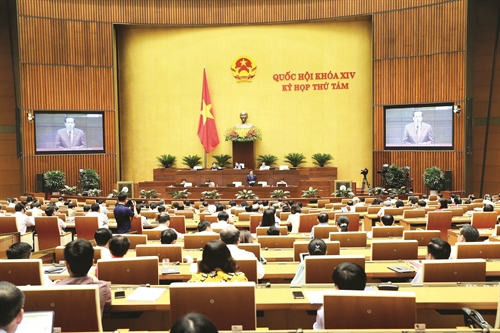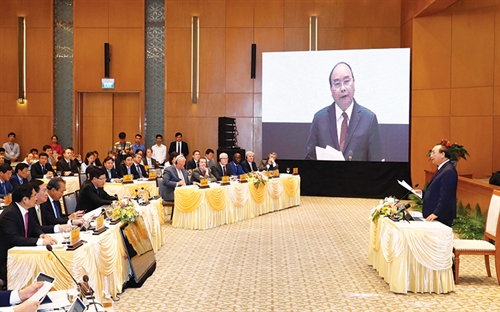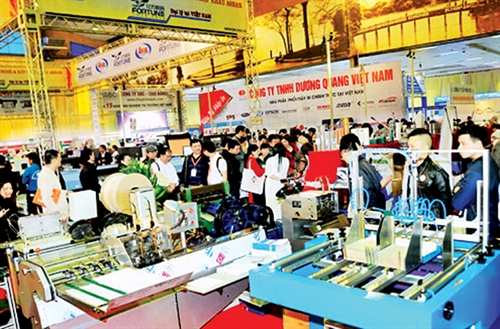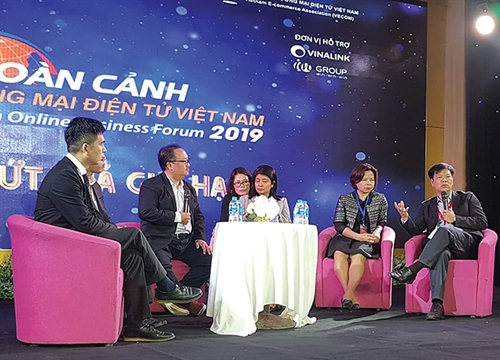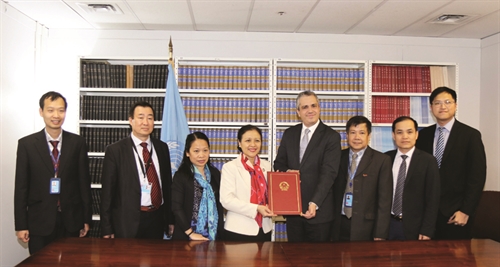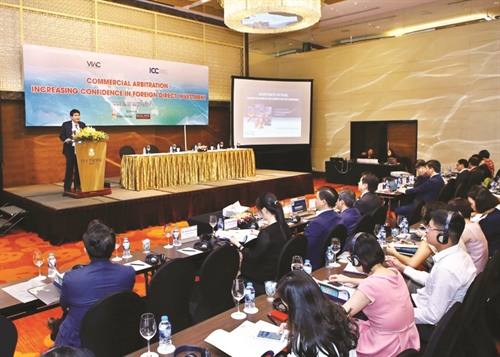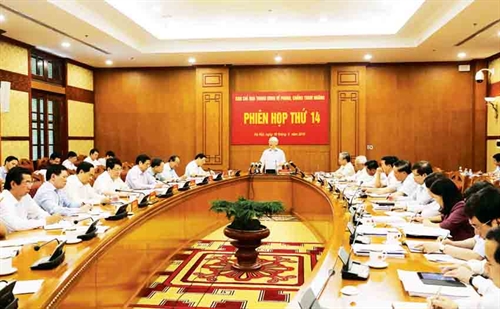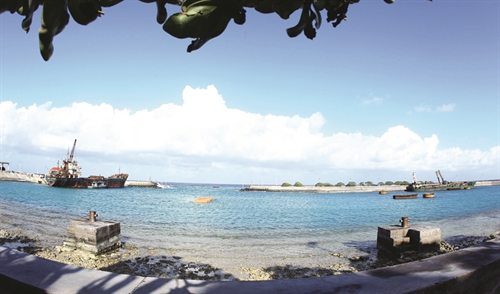The 2014 Housing Law has new provisions for foreigners to own homes in Vietnam, making a breakthrough in attracting foreigners to work and live in the country. However, the applied term of house ownership for foreigners produces some negative effects that the law fails to anticipate. This article points out inadequacies in the regime of Vietnam-based house ownership by foreigners and gives recommendations for improvement.
Tran Vang Phu[1]
After nearly eight years’ implementation of the 2005 Housing Law (the 2005 Law) and five pilot programs allowing foreign entities to own homes in Vietnam, significant results have been seen in the number of foreigners owning homes in the country, somehow meeting their demand for acquiring houses in Vietnam and helping boost the local socio-economic growth. The 2005 Law and National Assembly Resolution 19 of 2008 permitting on a pilot basis foreign organizations and individuals to buy and own houses in Vietnam (Resolution 19) have formed a relatively complete legal framework regulating foreigners’ home ownership in Vietnam. However, some obstacles have emerged in the actual implementation of these regulations.
To overcome these obstacles, the National Assembly passed the 2014 Housing Law (the 2014 Law) with new provisions on the right of foreigners to own homes in Vietnam. Accordingly, to own homes in Vietnam, foreigners are only required to have a valid entry visa. The condition requiring them to have resided in Vietnam for at least one year is removed. In addition, foreigners may own more types of homes as compared to Resolution 19[2]. Besides apartments in commercial housing projects, they may also buy detached houses[3] in these projects. Particularly, foreigners are entitled to own up to 30 percent of apartments in an apartment building or up to 250 villas or houses in a given ward. Moreover, foreigners may register their home ownership for 50 years and apply for a single extension of no more than 50 years.
Later, in 2015 the Government issued Decree 99 detailing and guiding the implementation of the 2014 Housing Law (Decree 99), helping settle problems in the previous regulations. However, after some years of implementation, they still reveal limitations related to the home ownership term for foreigners.
House ownership term under current regulations
Foreigners eligible to own homes in Vietnam
Under Article 159 of the 2014 Law, two groups of foreigners are entitled to own houses in Vietnam, including foreigners building houses under housing projects in Vietnam and foreigners permitted to enter Vietnam.
Under the 2005 Law, foreigners who are allowed to build houses under housing projects for lease in Vietnam have the right to own these houses. Meanwhile, under the 2014 Law, foreigners who are allowed to build houses under housing projects for sale, lease or lease-purchase may own homes in Vietnam. So, under these provisions, the prerequisite condition for foreigners to own homes in Vietnam is that they must be owners of projects to build homes in Vietnam. More specifically, they must form enterprises under the law on enterprises or cooperatives under the law on cooperatives (below collectively referred to as enterprises) and have a legal capital of at least 20 billion Vietnam dong for the projects. Foreigners who sell, transfer, lease or lease-purchase property on a small scale and on an irregular basis[4] are not required to establish enterprises but must declare and pay taxes under law[5].
The second group of foreigners allowed to own homes in Vietnam includes those who have a valid entry visa. Specifically, they must possess passports or papers of international travel validity and entry visas. For a foreigner entering Vietnam from a country exempted from Vietnam visa requirements, his/her passport must have a remaining validity period of at least six months and his/her entry must be at least 30 days after the previous exit from Vietnam.
In addition to enabling foreigners to own homes in Vietnam, the current law also permits them to opt for their legal status when participating in this ownership relation. Specifically, “in case a foreigner has a written certification of his/her Vietnamese origin, he may only choose to be treated either as an overseas Vietnamese or as a foreigner eligible to own houses in Vietnam.”[6] As the housing law has different provisions applicable to Vietnamese citizens, overseas Vietnamese[7], and foreign individuals, so it is very necessary to ascertain the legal status of these entities in the house ownership relations. In reality, not a few foreigners with Vietnamese origin use one status (foreigner or overseas Vietnamese) to enter Vietnam while choosing the other status to participate in the house ownership relations in the country.
Currently, overseas Vietnamese include Vietnamese citizens who permanently live in foreign countries and overseas Vietnamese of Vietnamese origin who permanently live in foreign countries, also known as persons of Vietnamese origin living in foreign countries.[8] The latter are different from foreigners only in the fact that they have “Vietnamese origin” and are still treated as foreigners unless they obtain a certificate of Vietnamese origin. At present, these people may apply for a certificate of Vietnamese origin either in their host countries or in Vietnam if they so wish[9].
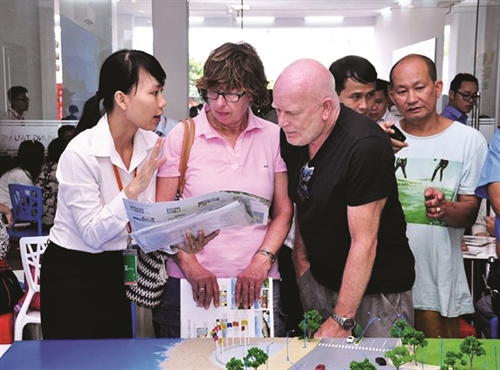 |
| A real estate broker and her foreign clients__Photo: Internet |
House ownership term
Along with the provision on the quantity of houses a foreigner may own in Vietnam, the stipulation on house ownership term is also another way to restrict foreigners’ ownership in Vietnam. While domestic organizations and individuals and overseas Vietnamese are entitled to own homes permanently, different categories of foreigners may only own homes for different periods of time.
Specifically, for foreigners who are eligible to own homes through building houses under housing projects in Vietnam, their house ownership term will be the operation period of their projects. Under Article 43 of the 2014 Investment Law, for projects located in economic zones, projects located in geographical areas with socio-economic difficulties or extreme socio-economic difficulties, or projects with large investment capital amount but slow capital recovery capacity, the maximum operation period of a project is 70 years, and for those based outside economic zones, it is 50 years.
For foreigners owning homes through purchase, lease-purchase, donation, or inheritance, their ownership term will be as agreed in house purchase, lease-purchase, donation or inheritance agreements for no more than 50 years from the date of grant of house ownership certificates and is written down in the certificates[10]. Moreover, Article 77 of Decree 99 also allows these foreigners to have their house ownership term extended once for no more than 50 years from the date of expiration of the initial term. Such extension will not be considered for those who are expelled by Vietnamese authorities from the country. Before the date of expiration of the house ownership term, the house owners may themselves or authorize others to sell or donate their houses to entities that are eligible to own homes in Vietnam; otherwise, such houses will belong to the State[11].
With these provisions, foreigners may only own homes until the end of the operation period of the housing projects, regardless of when they establish the house ownership. At the same time, this term cannot reach 50 years from the date of grant of house ownership certificates as mentioned above.
The question here is when we can apply the above method of determining the house ownership term for foreigners “of 50 years at most with a single extension of up to 50 years from the date of grant of house ownership certificates” while the current law only allows foreigners to purchase, lease-purchase, be donated or inherit commercial houses built under housing projects[12]. In other words, if the current legislation only allows foreigners to own commercial houses under housing projects, it is only possible to determine such term based on the operation period of projects but not on the date of grant of certificates as said above. So, if based on the operation period of housing projects, it is almost impossible for foreigners to own homes for 50 years and impossible for them to have this term extended for another 50 years. So far, this issue remains unanswered and the Ministry of Construction still applies Article 7.3 of Decree 99 to determine the home ownership term for foreigners[13].
Problems concerning house ownership term
The current regulations allow foreigners to own homes in Vietnam for up to 50 years and have this term extended for another 50 years at most. The total house ownership term of up to 100 years is quite sufficient for foreigners to live and work in Vietnam. Compared to other countries in the region, this term is the longest. For instance, this term is 99 years in Singapore and Malaysia, 75 years in the Philippines, or 70 years in Indonesia[14].
In Vietnam, the implementation of the 2014 Law’s provisions on determination of the house ownership term for foreigners has encountered some problems.
First, the current law permits foreigners to sell or donate houses to other foreigners who are eligible to own homes in Vietnam. Then, the buyers or donees may own the homes for the rest of the house ownership term. When this term expires, the house owners may have it extended under law by the State if they so wish[15]. The problem is that from what time “the rest of the house ownership term” is counted, and whether such permission is rational and matches reality.
Second, under the current regulations, foreigners may co-own houses with domestic organizations, households or individuals or overseas Vietnamese through purchase, lease-purchase, donation or inheritance of houses. Nevertheless, so far there is no specific provision on the house ownership term for foreigners in this case.
Responding to this, the Housing and Real Estate Market Management Agency says on the portal of the Ministry of Construction: “The current housing law only stipulates the recognition of Vietnam-based house ownership by foreigners or by foreigners and their spouses who are Vietnamese citizens living in the country (not covering the case in which foreigners who, together with Vietnamese citizens, contribute money to buy and own homes in Vietnam). Therefore, in this case the married couple may agree that either of them undersigns the certificate of land use rights and ownership of houses and land-attached assets for the house bought.[16] The Ministry of Construction’s solution to this issue, however, seems to be irrational and fails to guarantee the lawful rights and interests of the parties. This is because the other party will be put at a disadvantage in exercising its rights and protecting its legitimate interests. This solution is also likely to cause disputes once the parties cannot reach agreement. So this requires separate provisions dealing with the co-ownership of houses by foreigners and domestic organizations, households or individuals or overseas Vietnamese. Then, the term of house ownership by foreigners (i) may be either permanent (similar to cases in which foreigners have Vietnamese or overseas Vietnamese spouses), or (ii) must not exceed 50 years and may be extended once for no more than 50 years[17].
Third, foreigners are allowed to donate or sell their lawfully owned houses to entities eligible to own houses in Vietnam before the house ownership term expires under law[18]. This is understood that before the extended house ownership term expires, foreigners may donate or sell these houses to domestic organizations, households or individuals, overseas Vietnamese or foreign organizations or individuals. The house ownership terms will differ depending on the type of buyers or donees. Among them, domestic buyers or donees may own these homes permanently[19].
These provisions seem to omit a case: Foreigner A owns a house in Vietnam and the house ownership term is about to expire (after it is extended once). He sells this house to B who is a Vietnamese residing in the country. When B buys this house, the house ownership term will become permanent. Some time later, B transfers the ownership of such house to A. So, there are two questions to answer. The first is whether B is allowed to sell or donate the house to A. The current law does not ban this transaction[20]. The second is, if recognizing the validity of the second purchase and sale contract, how will the house ownership term be determined? The current law does not anticipate this case.
Although having created an open legal framework for foreigners to own homes in Vietnam, the current law still has “loopholes” which foreigners can take advantage of to “renew” the ownership term upon its expiration. This makes it hard to attain the purpose of issuance of the regulations on house ownership term for foreigners.
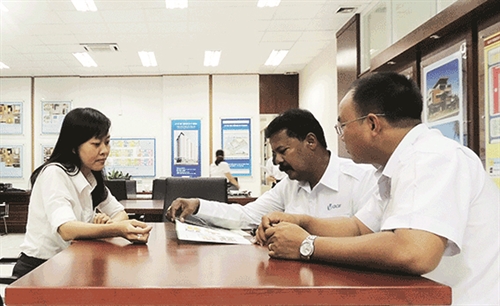 |
| Foreign customers seek information on housing projects at Hodeco real estate trading floor__Photo: https://www.baobariavungtau.com.vn |
Recommendations
To improve the legislation on the Vietnam-based house ownership term for foreigners, the author gives some suggestions.
Firstly, the house ownership term should ensure equality for all foreigners, regardless of whether they are the first or subsequent buyers or donees of houses. This will help prevent the abuse of legal loopholes in the calculation of the house ownership term.
Secondly, it is necessary to add provisions on house ownership term in case foreigners co-own houses with domestic organizations, households or individuals or overseas Vietnamese. Specifically, this term should still be similar to cases of separate ownership, i.e., no more than 50 years, and may be extended once for another 50 years at most, but should not be permanent. This case should be distinguished from the case of foreigners who have spouses being Vietnamese citizens or overseas Vietnamese because the latter have a spousal relationship in which spouses are regarded as “next of kin”[21] under the 2014 Law on Marriage and Family. Additionally, Vietnamese civil law’s provisions on asset ownership have distinguished common ownership by husband and wife and normal common ownership. Therefore, common ownership by husband and wife in case foreigners and their spouses being Vietnamese citizens or overseas Vietnamese co-own their houses should be differentiated from common ownership in case foreigners co-own houses with Vietnamese citizens or overseas Vietnamese, at least with regard to the home ownership term.
Moreover, a foreigner may easily establish house co-ownership with an entity entitled to own houses permanently based on their friendship or partnership relationship. If allowing foreigners to own houses permanently in this case, they may intentionally establish co-ownership of houses in order to receive incentives from the State, thus exerting adverse impacts on the real estate market.
Thirdly, to address the problems arising from the implementation of the provisions permitting foreigners to own homes permanently after getting married to Vietnamese citizens or overseas Vietnamese, the current housing legislation should be added with detailing provisions, specifically as follows:
(i) For a foreigner having divorced his/her Vietnamese or overseas Vietnamese spouse, his/her house ownership term may be determined in the two cases below: (1) If, after the divorce, the couple divide their house under common ownership and the foreigner has the right to own this house, such term will be determined similarly to the case in which a foreigner establishes the separate ownership over the house; and (2) if, after the divorce, the couple still co-own the house, such term will be counted in the same way as the case of co-ownership as proposed. Hence, after the divorce from a Vietnamese or an overseas Vietnamese spouse, a foreigner may own a house only for 50 years and have this term extended once for another 50 years at most in both cases.
(ii) For a foreigner who co-owns a house with his/her child being a Vietnamese citizen or foreigner (having a written certification of Vietnamese origin), his/her house ownership term will be set to be permanent as analyzed above.
Fourthly, there should be provisions not allowing foreigners to re-establish ownership over houses after the expiration of their ownership term. For instance, through the sale of houses to entities eligible to own houses permanently, foreigners may later buy back or receive the donation of these houses. This proposal aims to prevent foreigners from abusing legal loopholes concerning the determination of the house ownership term.-
